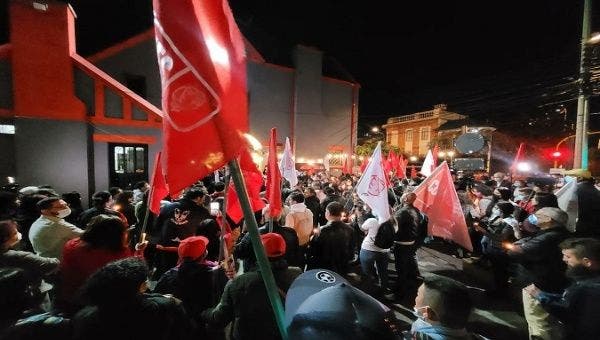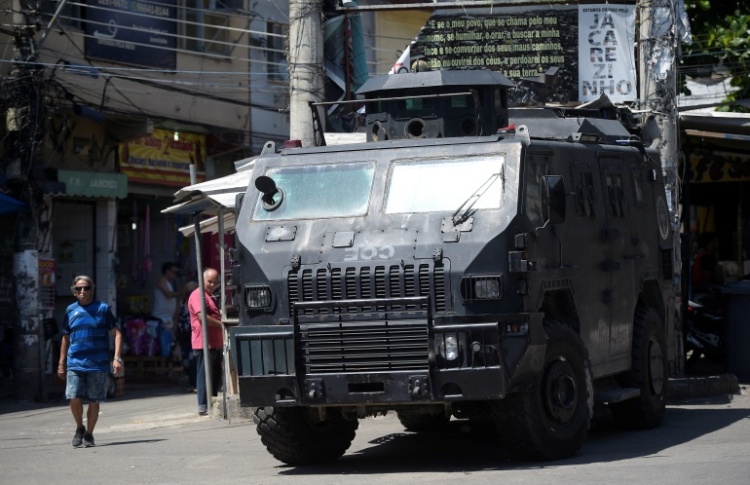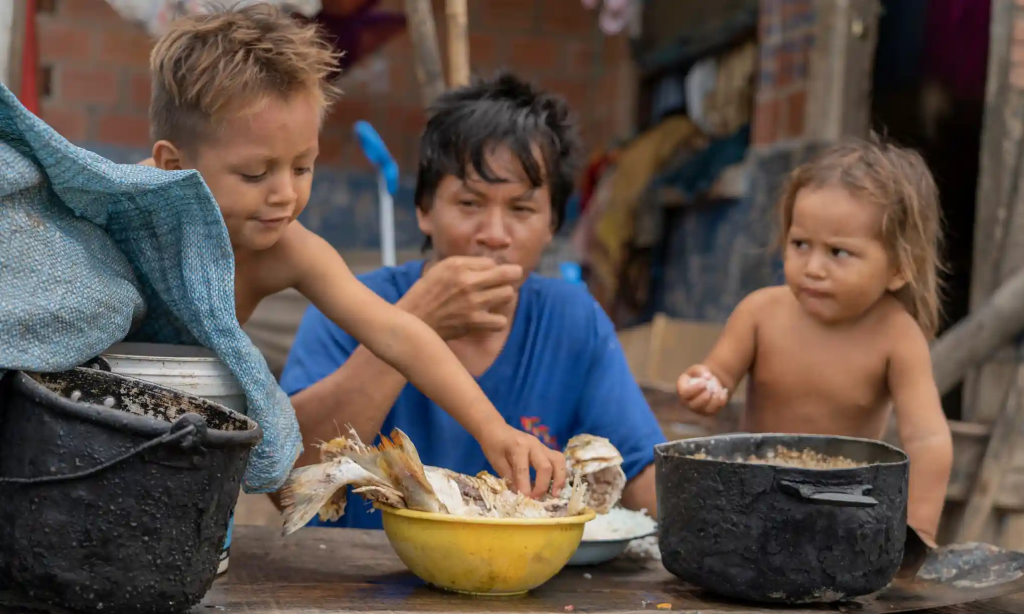This month, we update you on developments in Colombia, Brazil, Venezuela, Paraguay, Chile, Peru and Bolivia, including some good news from Peru and Paraguay. Demonstrations have taken place in Colombia to condemn the many people killed or disappeared in clashes near the Venezuelan border. A family of human rights defenders have been killed in Brazil. The United Nations have reviewed the human rights situation in Venezuela. We met the British Ambassador to Paraguay to discuss Amnesty’s report about sexual violence against children and adolescents. In Chile, the new cabinet has a majority of women. The Guardian has a report on the impact of mercury contamination on indigenous people in Bolivia.
COLOMBIA

In the first weekend of January, at least 33 people were killed, others disappeared and hundreds forcibly displaced in Arauca Department, near to the border with Venezuela, according to WOLA Colombia Peace Monitoring. They provide the background to the continued fighting between former guerrilla groups ELN (National Liberation Army) and FARC (Revolutionary Armed Forces of Colombia) dissidents over the control of the cultivation, production and trafficking of cocaine in this region and possible measures that should be taken by the Colombian authorities.
The Internal Displacement Monitoring Centre reports that 871 people were forcibly displaced in Chocó Department 12 to 25 January. This followed fighting between ELN former guerrillas and former paramilitaries in an area where drug trafficking is widespread. A further 1,230 people were confined to their homes and two of them killed by indiscriminate gunfire.
To commemorate the 5th anniversary of the Peace Accord, the UN Verification Commission reports on human rights and the Peace Process in Colombia. They examine all the interrelated issues, including its implementation, the work of the Truth Commission, the Special Jurisdiction for Peace, reintegration of former combatants, security guarantees, gender and child violence and ethnic affairs. They evaluate recent actions by the International Criminal Court, the USA, the Colombian Congress and the Colombian government intended to help resolve these issues.
In its annual report on Colombia, Human Rights Watch covers issues ranging from climate change to human rights abuses by the police and prison officers. The report notes that while violence subsided following the Peace Accord, ‘conflict-related violence has since taken new forms, and abuses by armed groups [ELN, FARC dissidents, former paramilitaries] including killings, massacres, and massive forced displacement increased in many remote areas of Colombia in 2021’.
Update, New Urgent Action – Columbia – Environmental Defenders at Risk
BRAZIL

A family of three environmental rights defenders, Zé, Márcia and Joene do Lago, were killed in Para state on 12 January. Amnesty International has demanded that their killers be identified and brought to justice without delay. Brazil ranks fourth highest country in the world for the killing of protectors of the environment.
Al Jazeera reports that more than 1,000 heavily armed police have occupied the Jacarezinho favela in Rio de Janeiro this month, ‘amid what officials said were renewed efforts to crack down on gangs and drug dealers.’ A police raid into the same favela in May last year ended with the killing of 29 people, including a policeman. According to Human Rights Watch, Rio police killed 1,096 people from January through September 2021, a 17 percent increase from the same period in 2020.
The news agency Publica informs that Brazil will be tried by the Inter-American Court of Human Rights for possible human rights violations against the quilombola Afro-descendant communities of Alcântara, in Maranhão, which resulted in the forced eviction of 300 families. Their land was expropriated in the 1970s for the Alcântara Space Centre, which is used for launching rockets from several countries.
Human Rights Watch has published its annual report on Brazil for 2021. It examines three main concerns: President Bolsonaro’s threat to democratic rule; police killings, which at more than 6,400 are the highest ever recorded and the destruction of the Amazon rain forest, with 13,000 km2 cleared. The report also covers the appalling conditions in detention centres, gender identity, women and girl’s, disability, indigenous and migrant rights.
VENEZUELA
On 25 January, the UN undertook a review of the human rights situation in Venezuela as part of its regular Universal Periodic Review programme. According to Human Rights Watch, the review presented “an opportunity to expose Venezuela’s authorities’ blatant disregard for fundamental rights and outline essential recommendations it needs to adopt to comply with its international obligations”. 116 delegations took the floor and UN member States submitted 328 recommendations for Venezuela’s attention. The UK representative delivered a statement expressing deep concern over reports of the use of the justice system to undermine democracy. The UK’s recommendations included steps to end forced labour, sexual exploitation and forced trafficking; sexual and reproductive health and rights for all; and respect for the independence of political parties.
The Inter-American Commission on Human Rights (IACHR) has condemned the at least 27 extrajudicial executions of people in poverty, committed by police officers in Venezuela during the first fortnight of 2022 and has called on the State to “investigate, judge and punish” those crimes.
PARAGUAY
In January, Graham had an online meeting with the British Ambassador in Paraguay and the FCDO’s Paraguay Desk Officer to discuss Amnesty’s report on sexual violence against children and adolescents in that country. The Ambassador said that the British Government shared our concerns and that he had raised the issue with Ministers and others. They were also funding small projects aimed at addressing the issue. There is some good news as the Paraguayan Government has approved a “single pathway for comprehensive care” (recommended in the Amnesty report) and the Senate has submitted a declaration to declare Amnesty’s report “of national interest”.
Human Rights Watch has reported on the impact of Paraguay’s “draconian” abortion law on rape survivors who are forced to have unsafe abortions, putting their lives and health at risk.
CHILE
Human Rights Watch have noted that Chile’s new president-elect, Gabriel Boric, who ran on a progressive feminist platform, has announced a cabinet in which fourteen of the 24 ministers are women. During his campaign, Boric promised to focus on human rights issues that have been top priorities for feminist groups, such as violence against women, discrimination at work, sexual and reproductive rights, housing and care work.
PERU
More good news. Following Amnesty’s report last year on the serious harm caused to indigenous communities in Espinar by high levels of toxic metals in their blood, the government have approved a national level “Special Multisectoral Plan for Integral Intervention in favour of the Population Exposed to Heavy Metals, Metalloids and other Toxic Chemicals” with a considerable budget.
Yet more good news. Following our Urgent Action sent to you in November, Peruvian authorities have informed Amnesty that 4,244 children and adolescents have been granted Humanitarian Immigration Status, putting an end to an arbitrary practice that denied them this migratory status, and therefore access to basic rights, such as education and health. Amnesty will continue to monitor the situation, and campaign for the rights of children and adolescents seeking asylum in Peru.
Thank you to all those who took action on these two issues.
BOLIVIA

All the best
South America Team – Richard Crosfield (Colombia and Brazil), Carla Torres (Chile and Argentina), Javiera Martinez (Venezuela) and Graham Minter (rest of South America).